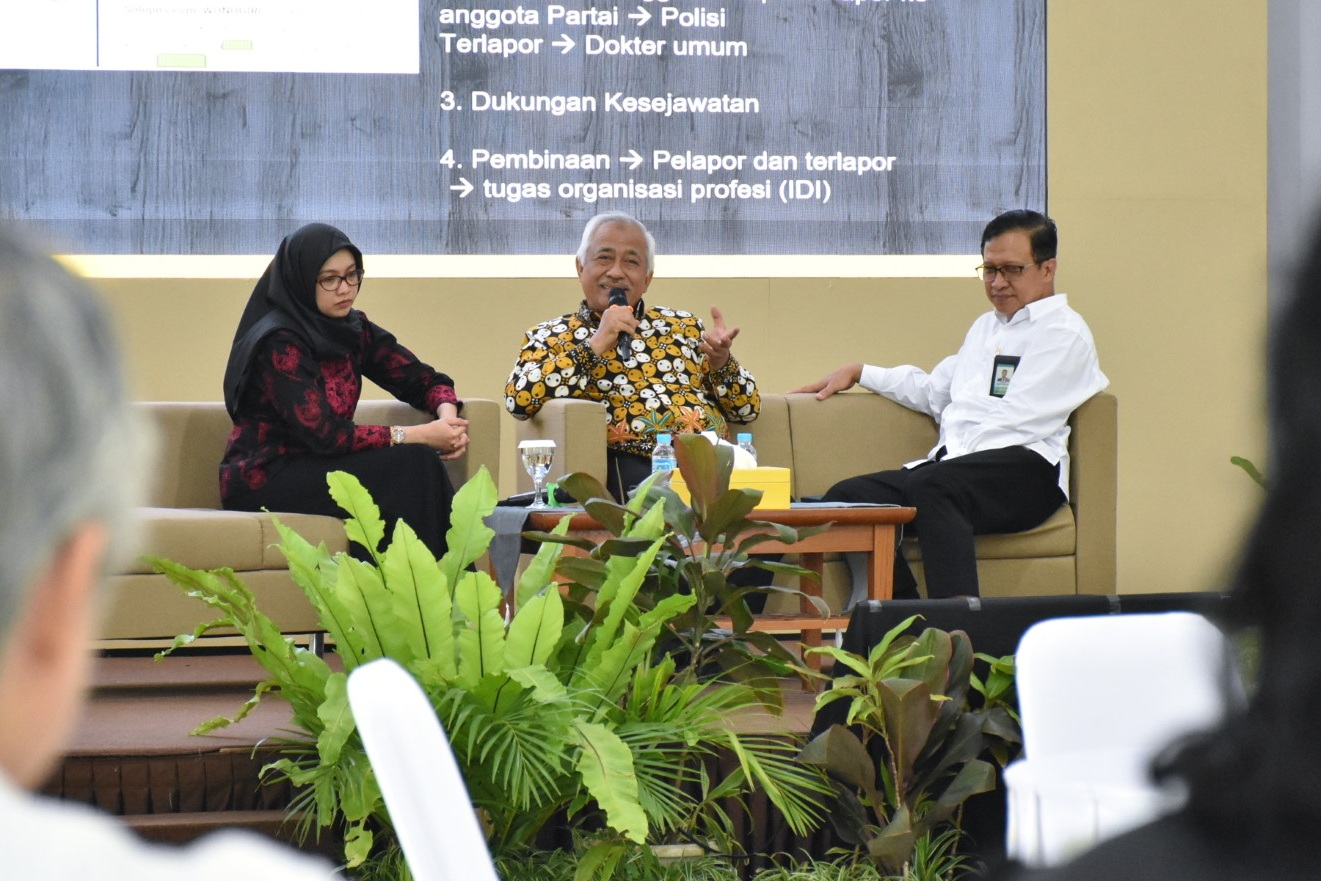Law No. 17 of 2023 on Health, also known as the Omnibus Law on Health, introduces significant reforms aimed at improving and strengthening Indonesia’s healthcare system. The key focus areas of this law include the enhancement of healthcare service infrastructure, the development of healthcare professionals and facilities, as well as the expansion of telemedicine and integrated healthcare networks.
In response to these challenges, iDSDC FKG UGM organized a workshop titled "Practical Guidelines on Ethics, Discipline, and Health Law: Post-Implementation of Law No. 17 of 2023 for Healthcare and Medical Professionals." The event aimed to provide in-depth insights into the practical application of this new regulation in daily medical practice.
According to Drg. Fuad Ansar, the event coordinator, participants were guided in identifying and addressing ethical, disciplinary, and legal issues commonly encountered in healthcare services. "This workshop ensures that healthcare and medical professionals can deliver better, more professional services while complying with legal regulations and avoiding potential legal conflicts in the future," Fuad stated.
Prof. Drg. Suryono, S.H., M.M., Ph.D., one of the key speakers, emphasized that healthcare professionals must adhere to professional and ethical standards in their practice. He highlighted the importance of following established procedures, maintaining patient confidentiality, and making appropriate patient referrals when necessary. "In this context, the professional code of ethics serves as the primary foundation that guides every action and decision taken by healthcare professionals," Suryono explained.
Meanwhile, Dr. Drg. Edi Sumarwanto, M.M., MH.Kes., stressed the importance of healthcare professionals being aware of the legal norms governing their profession. "The healthcare profession is bound by various ethical, disciplinary, and legal norms," he noted. He outlined three key types of violations that professionals must be aware of: ethical breaches, disciplinary violations, and legal infractions.
He further emphasized that healthcare professionals must strictly adhere to professional guidelines and protocols, including standard operating procedures, service ethics, professional competence, and interdisciplinary collaboration—always prioritizing patient rights.
Adding to the discussion, Dr. Diah Arimbi, S.Si.T., M.H., underlined the vital role of professional ethics in maintaining quality healthcare services. "A code of ethics serves multiple functions: it provides professional guidelines, acts as a control mechanism, establishes core values for collective practice, and prevents external interference in the profession," she explained. "Not only does the ethical code ensure the quality of healthcare services, but it also upholds the integrity of the profession in the eyes of the public."
In the closing session, Drg. Edi Sumarwanto reaffirmed the importance of maintaining professional discipline. He emphasized that every action in medical practice must comply with established procedures and avoid unapproved improvisations.
With this principle in mind, he expressed hope that healthcare professionals would continue to adhere to procedural standards, ensuring optimal service quality and patient safety.
Author and Photo: Fajar Budi Harsakti

